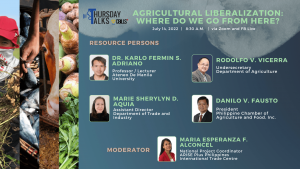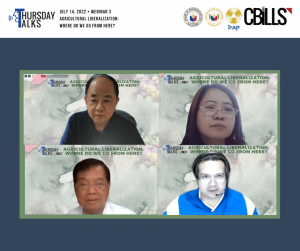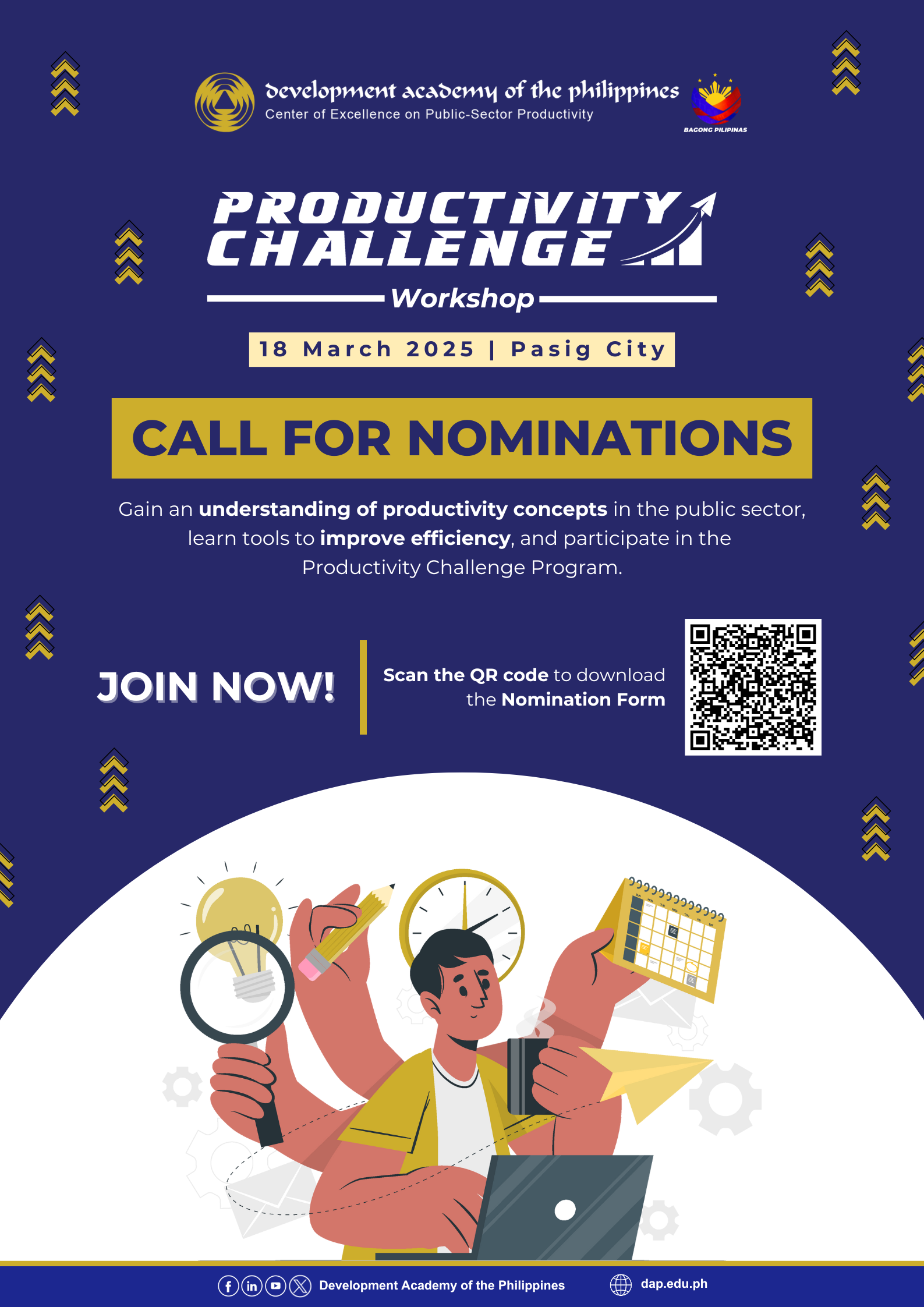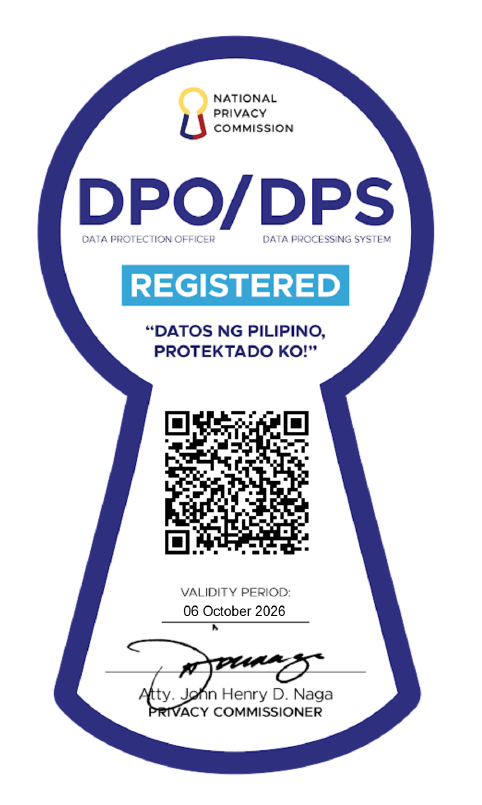
In the third installment of the Capability Building on Innovative Leadership for Legislative Staff (CBILLS) Program’s Thursday Talks: Webinar Series on Socio-Political and Economic Perspectives, the Development Academy of the Philippines, through its Center for Governance-Policy Research Office (CFG-PRO), discussed issues on agricultural liberalization with a webinar entitled “Agricultural Liberalization: Where Do We Go From Here?”
The webinar, held on July 14, 2022, tackled the Philippines’ current challenges in terms of agricultural productivity and the long-standing issues of liberalization in the agriculture and fisheries sector. It also examined possible policy recommendations and actions that will address agricultural growth and productivity in the country.
Dr. Karlo Fermin Adriano of the Ateneo de Manila University and Undersecretary Rodolfo Vicerra from the Department of Agriculture served as session speakers. In his session, Dr. Adriano debunked the myths of trade liberalization in the Philippines. He presented the basics of international trade economics as well as some historical data on agriculture trade and productivity issues of the country. He also recommended that the budget should be based on the comparative advantage of the sector to promote faster agricultural growth, and that the Philippines should develop time-bound protection on commodities to give producers time to prepare and innovate.
Meanwhile, Undersecretary Vicerra highlighted the challenges affecting the growth and productivity of the agricultural and fisheries sector which include inadequate infrastructure, crop damages from frequent natural calamities, environmental degradation, and farmers’ lack of access to credit. He also noted that due to weak governance and lack of budget, the full implementation of existing agricultural policies of the Philippines continues to be a huge concern especially for the new administration. Further, he recommended the continuation of the DA’s Farm and Fisheries Clustering and Consolidation Program (F2C2) which aims to increase the competitive advantage of farmers in the open market and address their lack of motivation and means to join agricultural cooperatives.
Assistant Director Marie Sherylyn Aquia of the Department of Trade and Industry – Bureau of International Trade Relations and President Danilo Fausto of the Philippine Chamber of Agriculture and Food Inc. served as panel discussants while Ms. Maria Esperanza Alconcel of the International Trade Centre was the moderator for the webinar.

(From Top-left: DA Undersecretary Rodolfo V. Vicerra and DTI-BITR Assistant Director Marie Sherylyn D. Aquia,
From Bottom-left: PCAFI President Danilo V. Fausto and Dr. Karlo Fermin S. Adriano)
Ms. Aquia and Mr. Fausto shared their analyses about the challenges of the agriculture and fisheries sector in accessing the open market and utilizing the free trade agreements. Both stressed that the problems in local production barred the farmers and fisherfolks from engaging in trade liberalization, and that they experienced income losses due to surges of imports. To sum up their reactions, they provided policy recommendations geared towards increasing the competence and innovative practices of stakeholders and government in the agriculture and fisheries sectors of the Philippines.
The CBILLS is being implemented by DAP in partnership with the Philippine Congress. To date, the program has trained a total of 476 legislative officers and staff through the program’s 22 local courses, 20 lectures or webinars, and 12 international learning courses from 2018 to 2021.




